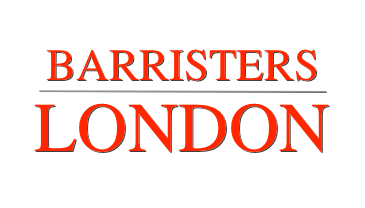GMC v Saeed [2020] EWHC 830 (Admin) – Case Digest
GMC v Saeed [2020] EWHC 830 (Admin)
Case Law Digested by Barrister Penny Maudsley
This was a GMC appeal under section 40A of the Medical Act 1983.
Dr S, a neurologist, was given a 12 month suspension, with a review, by the Medical Practitioner’s Tribunal for a criminal conviction for his ‘controlling and coercive behaviour’ and Assault Occasioning Actual Bodily Harm (ABH) towards his wife.
Dr S had slapped and throttled his wife, causing bruising around her neck. In mitigation, Dr S said that he discovered that he had been deceived by his wife and her family prior to their marriage as he had been led to believe that it was her first marriage, and that she was a virgin.
Dr S was acquitted of five of the seven of charges against him in the criminal proceedings. However, he continued to deny all aspects of the offences he was found guilty of.
He failed to attend the hearing before the MPT and was not represented. He also failed to attend the appeal hearing but did send a ‘respondent’s bundle’ including his responses and submissions in which he accepted impairment. He tried to admit new evidence in his statement which was rejected. Murray J proceeded in the absence of Dr S.
In allowing the GMC’s appeal, the learned Judge stated [77] that the MPT is obliged to have proper regard to the Sanctions Guidance and, when departing from it, to do so for sound reasons and to state those reasons clearly in its decision. The MPT failed to do that in this case, at a minimum, in relation to factors (c), (d), (e) and (g), of paragraph 109 and not sufficiently clearly, if at all, in relation to factors (a) and (b). As noted by Jay J in Stone at [53], of Professional Standards Authority v Health and Care Professions Council, Doree [2017] EWC Civ 319, it is not sufficient to rely on a “generalised assertion that erasure would be a disproportionate sanction”.
Although the MPT referred to various matters that might be mitigating factors, it failed to identify the relevant mitigating factors in connection with its analysis of factors (a), (b), (c), (d), (e) and (g), to clarify what weight it gave to each of the mitigating factors and to indicate how the relevant mitigating factors had the effect of justifying the lesser sanction of suspension in lieu of erasure. [78]
There was also clear difficulty with the MPT’s decision in relation to paragraph 119 of the Sanctions Guidance. Dr S’s suspended sentence order would not be completed until August 2020 but his suspension from registration would expire in July 2020.
The Supreme Court made it clear in the case of Khan v General Pharmaceutical Council [2017] 1 WLR 169 at [23]- [35] the issue at a review hearing is not the underlying seriousness of the original conduct, but whether the impairment of fitness to practise has been remedied by the date of the review hearing. Paragraphs 163 and 164 of the Sanctions Guidance, which deal with the purpose of review hearings, is consistent with that authority. It is not the purpose of a review hearing to provide a device by which a violation of the principle in the Council for the Regulation of Health Care Professionals v General Dental Council, Fleischmann [2005] EWHC 87 (Admin), which is reflected in paragraph 119 of the Sanctions Guidance, can be corrected. [82]
It is not proper, in principle, for the MPT to depart from paragraph 119 of the Sanctions Guidance simply on the basis that it has also ordered a review hearing at which it has the power to extend the period of suspension. The original sanction must reflect the seriousness of the offending, and if the MPT is going to depart from the principle set out in Fleischmann and paragraph 119, it needs to have sound reasons to do so and to set those reasons out clearly in its decision. [83]
The case was remitted to the MPTS for it to arrange for an MPT to dispose of the case having regard to the judgement of Murray J.
If you are a professional dealing with a professional conduct or fitness to practise allegation, contact Barristers.London without obligation and in strict confidence to see how we might be able assist you and to discuss the potential costs of such work.
Back to Our Case Digests Page

Request a
Enquiries
